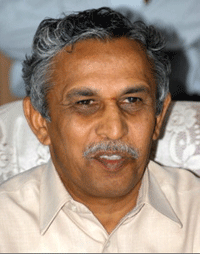In a shock announcement on July 10, a five-member sub-committee of the Bangalore University (BU) syndicate recommended revocation of autono-mous status granted to six of BU’s most prestigious affiliated colleges — Christ College, Mount Carmel College, St. Joseph’s College of Comm-erce, St. Joseph’s Evening College, St. Joseph’s College of Arts and Science and Jyothi Nivas College for Women.
 Addressing a press conference, BU vice-chancellor H.A. Ranganath said: “Most of the autonomous colleges are violating rules and regulations of the university. The colleges did not take prior permission from the university to start new courses, nor did they follow the roster method. They have also not paid the affiliation fees to the university and are collecting extra money from students. However, we will not take any decision without giving them a chance to explain their stand (sic). After they respond, the syndicate will meet again to decide whether autonomy status should be withdrawn.”
Addressing a press conference, BU vice-chancellor H.A. Ranganath said: “Most of the autonomous colleges are violating rules and regulations of the university. The colleges did not take prior permission from the university to start new courses, nor did they follow the roster method. They have also not paid the affiliation fees to the university and are collecting extra money from students. However, we will not take any decision without giving them a chance to explain their stand (sic). After they respond, the syndicate will meet again to decide whether autonomy status should be withdrawn.”
In a written reply to the syndicate’s allegations, the six colleges, whose faculty salaries are paid by the state government, have argued that as per UGC guidelines for autonomous colleges, they are not obliged to consult the BU administration on the impugned issues. “Under UGC guidelines, autonomous colleges have the freedom to introduce new courses, design curriculums and administrative procedures, conduct examinations and award their own diplomas. We are not obliged to consult Bangalore University on academic, admission and examination matters,” says a spokesperson of a college served with the show-cause notice on condition of anonymity.
Despite repeated telephone calls by your correspondent, none of the six college principals were available for comment. Obviously given that they are abjectly dependent upon state government handouts to meet their salary payment obligation, they fear rubbing BU/government the wrong way. All the six autonomous colleges receive grants ranging between Rs.2-4.5 crore per year from the state government to meet their salary bills. For example St. Joseph’s College of Arts and Science receives an annual grant of Rs.3 crore to pay faculty and staff salaries while the college generates only about Rs.80-90 lakh annually by way of tuition fees. Moreover, autonomous colleges receive ad hoc UGC grants of Rs.7-12 lakh per annum for infrastructure upgradation. Quite evidently, exercise of their autonomy as per UGC guidelines by the six colleges — which have reputations greater than Bangalore University — has irked the powers that be of the affiliating parent university.
Now two years later, by revoking their autonomous status, politicians and educrats of the state government, long accustomed to complete suzerainty over the higher education system, have struck back to regain their power and influence over Bangalore’s show-piece colleges. But according to academic grapevine whispers in Bangalore, there is a sinister political angle to the show-cause notice issued to the six autonomous high-profile colleges. All six are minority institutions run by Christian missionary orders. The other four autonomous colleges in Bangalore — Karnataka Chitrakala Parishat, National College (Basavangudi), National College (Jayanagar) and NMKRV College for Women — which have been given a clean chit by the BU syndicate, are run by the majority community. With a right wing BJP-led government having been recently (May 30) voted into power in the state, fears of a crackdown on minority institutions are being voiced.
Moreover educationists and the public have little faith in the academic judgement of the BU syndicate, whose members are nominated by the state government. In May 2007 the then JD(S)-BJP government stoked a major controversy for nominating cronies and political lightweights — instead of “eminent educationists” as required by law — to the syndicate.
Meanwhile in a move which is being interpreted as a slap in the face of the BU syndicate, on July 22 UGC conferred deemed university status upon Christ College — one of the six colleges fingered by the syndicate. A spokes-person for Christ College says that since they’ve received deemed university status, the withdrawal of autonomy threat is no longer applicable. But deemed university status is a two-edged sword. It will mean that Christ University will have to become financially independent.
In the interim the other five colleges — all of whom enjoy excellent reputations for their academic programmes in Bangalore and beyond — are likely to learn the hard way, that academic autonomy without financial autonomy is a much ado about nothing.
Summiya Yasmeen (Bangalore)